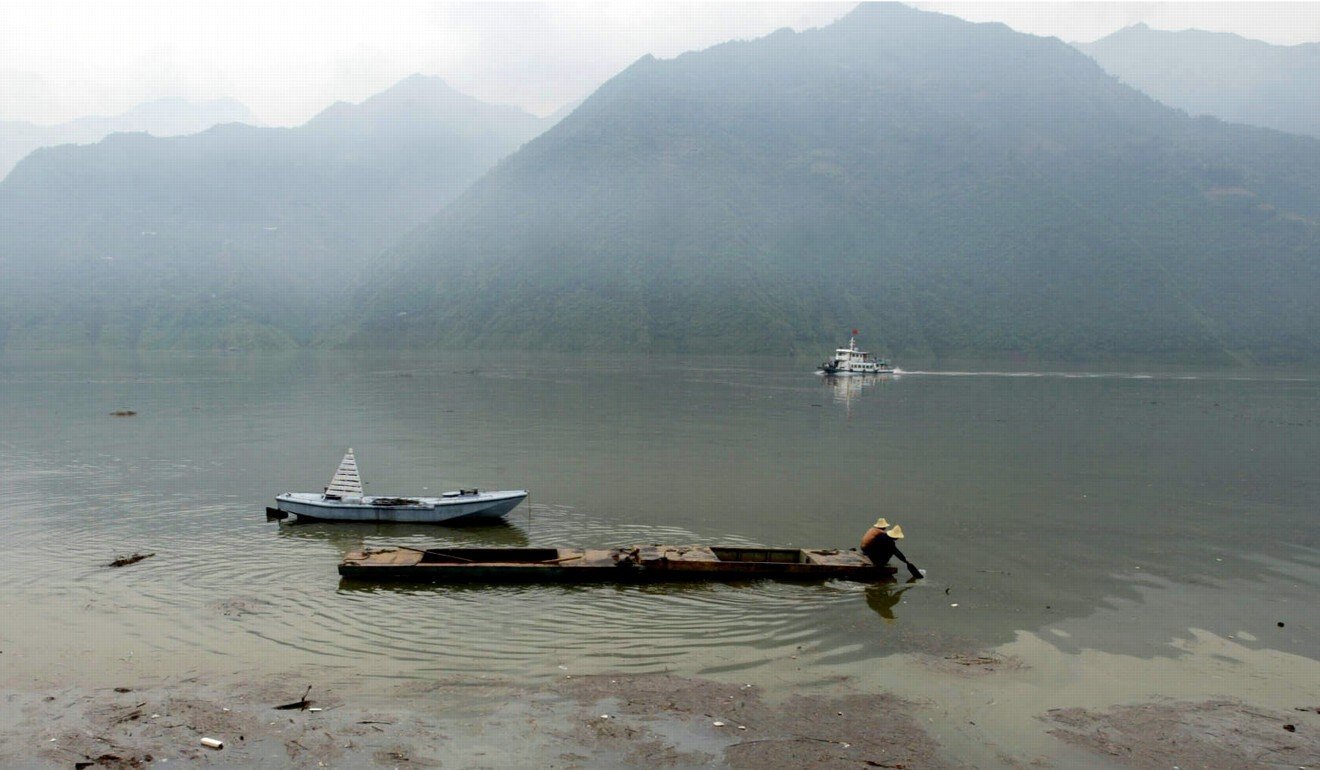
China promises help for 300,000 people hit by Yangtze River fishing ban
- Officials say they ‘empathise’ with communities left without a livelihood as a result of restrictions introduced at start of year
- More than 100,000 fishing boats will be taken out of service to help protect waterway’s biodiversity and dwindling stocks, officials say
Beijing imposed a 10-year ban on January 1 at 332 conservation sites along the river, which at 6,300km (3,900 miles) is the longest in Asia and third-longest in the world. It also said it would extend the restriction to the main river course, key tributaries and major lakes linked to it by January 1 next year.
Running from the Tibetan plateau to the East China Sea near Shanghai, the Yangtze and its tributaries pass through an area of China that is home to 459 million people, roughly equivalent to the populations of the United States and Japan combined.
The river has a rich biodiversity and is home to a large number of rare species, but decades of overexploitation has led to the near-complete depletion of its fisheries.
The Yangtze once accounted for 60 per cent of China’s freshwater fish production, but that figure is now less than 0.2 per cent, according to government data.
The fishing ban is the most aggressive action taken so far to restore the river’s ecosystem, but it has also devastated communities that have relied on the industry for generations.
On Wednesday, government officials said more than 100,000 fishing boats would be taken out of service and 300,000 people would have to give up fishing as a result of the ban. The number does not include people who fish the waters illegally.
As of July, about 80,000 fishing boats had already stopped operating and 100,000 people had left the industry, officials said.
“Most fishermen are relatively old and do not have many other skills,” said Song Xin, an official from the Ministry of Human Resources and Social Security.
“With the impact of the coronavirus, they have difficulty finding new jobs. We can indeed empathise with them.”
Song said the government would arrange vocational training to prepare people for new jobs in the construction sector and in factories, while those wishing to start their own businesses would receive subsidies or low-cost loans.
The government would also develop eco-friendly industries such as fish-farming and recreational fishing to generate jobs along the Yangtze, he said.

According to Chinese media reports, some fishing families said they had struggled to find jobs that gave them a comparable income, while others said the boats had been their home for decades and they had to find somewhere else to live.
Others acknowledged the problem of dwindling fish stocks in the river, saying their catches had been steadily declining and the fish had been getting smaller over the years.
Experts have said that aquatic life is facing a dire situation due to dam-building, pollution, overfishing, river transport and dredging, despite seasonal moratoriums.
The government said the 10-year fishing ban was urgently needed to revive the biodiversity in the Yangtze.
At the briefing on Wednesday, officials said illegal fishing remained rampant in some areas, even six months after the ban was introduced.
A public security official said police would step up their efforts to enforce the law by targeting sellers of banned fishing equipment.

